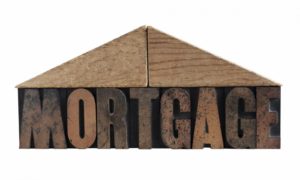I recently read an article in the Wall Street Journal wherein it questioned the wisdom of paying off one’s mortgage. The article posited that it is complicated, there are many factors involved, including the tax deductibility of mortgage interest, and concluded there is no right or wrong decision.

I Beg to Differ
Let’s go straight to the IMO section for this blog. Maybe I would just state it a different way. In my opinion, paying off one’s mortgage is never a wrong move. If you have the cash and the means to pay off your mortgage, it provides peace of mind, and that is invaluable. I look at paying off one’s mortgage the same as buying a mortgage-backed bond or pool of bonds. If you buy a bond, you get the monthly coupon interest payments, which means more money in your pocket. If you pay off your mortgage, you no longer have to make your mortgage payment, which means more money in your pocket. Either way, it is more money in your pocket.
Balance Sheet Effect
Paying off one’s mortgage does not enhance one’s balance sheet. In accounting terms, all you are doing is using an asset (cash or investments) to pay off a liability (mortgage). Your house doesn’t appreciate in value because you paid it off, and your net worth does not increase. Instead, mortgage payoff enhances your cash flow, because you no longer have to make that monthly payment.
Return Differential
The only good reason not to pay off your mortgage if you have the means to do so is so that you can get better returns elsewhere with that money. It has to be purely a financial decision. In that sense, the mortgage holder is acting like a bank. Banks make money when they borrow money at a low rate and then lend it out (or otherwise invest it) at a higher rate, and pocket the spread. If your mortgage rate is 3% and you think you can make 8% on the money that you would use to pay off your mortgage, then it may make sense to keep paying your mortgage payment and go for the 8% return. Keep in mind you are going farther out on the risk spectrum. An 8% investment has a far different risk profile than does a 3% mortgage secured by your own house. But you may have ways to mitigate the risk on the 8% investment.
Interest Deduction
The deductibility of mortgage interest is a nice perk, but if you are in a position to pay off your mortgage, you have to ask yourself, “Would I rather have a nice interest deduction, or would I rather own my house free and clear, and have the financial freedom that goes with that?” Also, keep in mind:
- In order to deduct your mortgage interest, you have to itemize, which means your itemized deductions must exceed your standard deduction. The standard deduction may be going up, perhaps even doubling from current levels.
- The deduction is limited to $1 million of debt, which may be decreased with future legislation.
Pay Off Other Debt
Should you increase your mortgage balance? Should you refinance and take cash out to pay off other, higher-cost debt such as credit card or student loans? This is a more difficult question to answer. From a straight interest rate standpoint, there is no question that mortgage debt is cheaper than student loan, or certainly credit card debt. But now you will be paying for the next 30 years rather than for a shorter term, and you put your ability to pay your mortgage and thereby stay in your home at greater risk. On balance, if you have enough home equity, I would recommend replacing student or credit card debt with mortgage debt. But don’t go above 80% loan to value (loan balance divided by home value).
